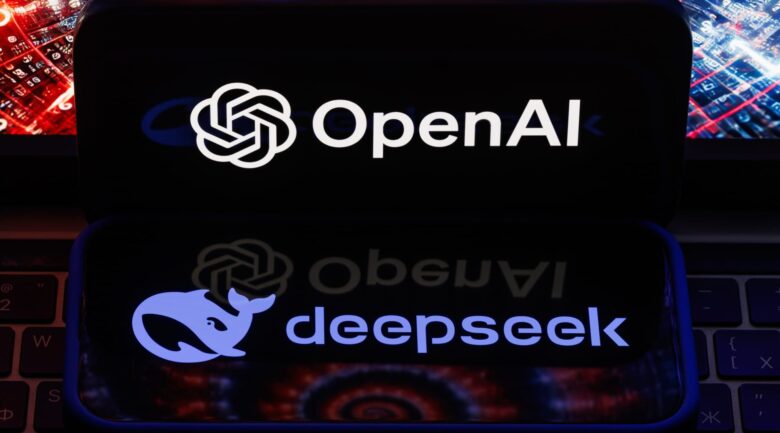Nearly 89% of small business owners report that someone in their company uses AI tools, yet many entrepreneurs still feel left behind by the AI revolution. A lack of knowledge and practical guidance is often cited as a key barrier preventing wider adoption. Katerina Andreeva has set out to change that. As the CEO of The Brained Inc., an innovative startup offering AI education and consulting for small business owners and solopreneurs, she helps demystify artificial intelligence for those who need it most. A former data and AI leader at IBM and an active advocate for women in STEM, she brings a unique blend of technical expertise and educational passion.
In our conversation with Katerina, we explored the current landscape of AI adoption among entrepreneurs, the role of education in making AI more accessible, and the broader societal and economic implications of empowering small businesses through technology.
Katerina, despite growing access to AI tools, many small business owners still hesitate to adopt them. What do you see as the main reasons for this gap, and what can be done to close it?
Many entrepreneurs face two main obstacles: a lack of clarity and confidence. The AI space evolves quickly, and this can feel overwhelming for business owners without a technical background. They hear about tools but don’t know which ones apply to their industry or how to use them effectively. On top of that, there’s the fear of wasting time or money on something that might not deliver immediate results. Without a clear path or trusted support, delaying action indefinitely is easy.
To close this gap, education must be practical and tailored. Business owners need access to structured guidance that speaks their language and connects AI to their pain points. Strategic adoption occurs when individuals feel a sense of ownership over their tools and can see tangible improvements in their workflow or client outcomes. With the proper support, AI becomes less of a mystery and more of a daily tool for growth.
You’ve emphasized the importance of tailored, practical education in making AI more accessible. How did this understanding lead you to create a company focused on AI for small businesses?
I had been thinking about starting something of my own for a long time, but defining the right direction took time and experience. After leaving IBM and briefly working as a CTO in a startup, I realized I wanted to build something independent that reflects both my technical background and my passion for teaching. I analyzed my strengths: years in IT consulting, deep expertise in AI and data, experience as a lecturer, and an understanding of how businesses operate.
That reflection shaped The Brained Inc.—a company focused on making AI practical for small business owners and solopreneurs. It combines education and consulting, with a clear roadmap that helps clients apply AI where it brings real value. The goal is to simplify complexity, provide people with tools they can trust, and support them throughout the learning and implementation process.
Your approach combines structured education with practical implementation. Could you explain how this model works?
We have developed a customized AI roadmap tailored to each client’s business needs. Our model is particularly effective for entrepreneurs without a technical background. It begins with a detailed assessment of their goals, workflows, and recurring tasks, including customer support, sales analysis, and internal operations. Based on that, we identify where AI can create a measurable impact. We then move into education, explaining relevant tools and techniques clearly and practically. Whether it’s an AI marketing assistant or a data analysis tool, the content is always aligned with their immediate needs and capabilities.
Once the client understands the potential, we begin implementation. We start with a pilot project—something small and focused, such as a chatbot or a forecasting model. From there, we customize the tool using their data, refine it through iteration, and ensure it fits seamlessly into their workflow. The final stage is integration and long-term planning: we help embed the solution into everyday operations and create a roadmap for future use cases. Clients complete the process with a functional AI solution, gaining the confidence and knowledge to expand it further.
Your model introduces something the market hadn’t seen before. What is the impact of helping small businesses adopt AI this way?
Small businesses are vital to any economy. They generate employment, foster innovation, and keep local communities vibrant. Yet, many small companies remain excluded from advanced technologies due to a lack of access, knowledge, or resources. By making AI adoption realistic and approachable for small business owners, we’re helping shift that dynamic. They gain the tools to optimize operations, improve decision-making, and scale in previously difficult or unaffordable ways.
The broader impact reaches beyond individual companies. When small businesses become more technologically capable, entire ecosystems benefit. Local economies strengthen, communities become more competitive, and entrepreneurs gain greater independence to create value. Technology becomes a source of empowerment rather than a barrier.
While enterprise-level solutions from companies like IBM have delivered impressive results, they often remain out of reach for smaller teams due to their cost and complexity. Our approach is different—practical, targeted, and cost-efficient. For example, I recently advised a colleague running a large B2B operation on implementing Cold Outreach Automation on LinkedIn. The platform had been underutilized, but within a month, they saw a noticeable increase in client acquisition, with approximately 30% more leads entering their sales funnel.
A similar system is now being implemented at Net4Tech, a nonprofit organization where I volunteer. Given the need to work with minimal resources, modern automation tools have made it possible to run targeted outreach without significant financial investment—something that would have been unthinkable just a few years ago.
What do you think is misunderstood about AI in the context of small businesses?
Many people still associate AI with futuristic robotics or large-scale automation, while some of the most impactful applications are simple. AI can help sort emails, forecast sales trends, write more effective customer responses, or enhance time management. These are problems that small businesses face every day. Due to the hype, there is a misconception that AI is either too advanced or irrelevant for minor operations.
Another misunderstanding is that using AI means handing over control. In reality, well-applied AI gives business owners more control over their time and resources. It enables clearer decisions, faster responses, and more consistent service. The challenge is translating technical potential into something meaningful at the human level—and that’s where thoughtful design and education play a crucial role.
How do you see AI influencing diversity in skills, access, and opportunity across different groups?
AI brings new ways for people with different backgrounds to participate in technology. Many tools are now easier to use and do not require deep technical training. This gives people from design, education, small business, or community work a chance to apply AI in their fields. They can solve problems, test ideas, and build tools that matter in their everyday work.
At the same time, the benefits of AI depend on how widely these tools and learning resources are shared. When systems are easy to understand and flexible in their work, more people can use them. This helps build a more balanced, open tech environment where different skills and experiences are valued.
Katerina, before launching your company, you held a leadership role at IBM and taught as a university and corporate lecturer. How have those experiences shaped how you lead your startup and craft solutions for clients?
My time at IBM shaped much of how I lead today. As a Customer Success Manager Data & AI Architect, I worked closely with clients to design and implement AI solutions across industries. That experience taught me that successful adoption requires alignment between people, processes, and goals. I often acted as a bridge between technical teams and business leaders, translating complex ideas into actionable plans. That approach is central to how we work at The Brained Inc.
My teaching background, both at universities and in corporate settings, perfectly complements it. Leading workshops on AI and data analytics helped me learn how to explain complex topics clearly and keep learning practical skills. They also trained me to switch easily between roles—whether it’s strategic leadership, hands-on training, or technical problem-solving—which is essential in a startup environment.
Beyond your business, you have helped empower women in STEM by serving on the executive board of Net4tec and as a former Director of the Women in Big Data Munich chapter. Why is increasing access to AI education for underrepresented groups vital to you?
This work matters to me on both a professional and personal level. Fields like AI still face significant gaps in gender and representation. Having often been the only woman on data teams, I understand how isolating that can be. Through Net4tec and Women in Big Data, I’ve helped build communities where women can access mentorship, practical learning, and real opportunities.
At The Brained Inc., this commitment continues. Our program is designed to reach those without a traditional tech background, especially solopreneurs and career changers. Expanding access to AI education helps close the gap, increases diversity in innovation, and strengthens the industry. More inclusive teams lead to more inclusive technology. For me, this mission and my company’s work go hand in hand: They are about opening doors and enabling more people to contribute meaningfully to the future of AI.
Looking ahead, what role do you see AI playing in the evolution of entrepreneurship?
AI is becoming part of the foundation on which new businesses are built. Entrepreneurs who understand how to utilize it effectively early on can launch faster, scale smarter, and serve customers more personally. It will shape everything from how ideas are tested to how customer feedback is analyzed in real time. The speed of learning and iteration will increase, changing how entrepreneurship feels—less guesswork, more informed action.
At the same time, the human side will remain essential. Vision, empathy, and originality are still things machines can’t replicate. The entrepreneurs who thrive will be the ones who blend intuition with intelligent tools. That combination will define a new kind of agility and resilience that smaller businesses can use to their advantage.
As the last question, what advice would you give to small business owners just starting to explore AI?
It helps to begin with curiosity rather than feeling pressured to act quickly. Exploring AI doesn’t have to mean overhauling a business model or investing in expensive tools. It can start with noticing where time is spent on repetitive tasks or where decisions are made without sufficient data—even basic awareness of how specific tools work can bring clarity and open up new possibilities.
Considering AI as part of a broader learning journey is also valuable. Understanding grows over time, often through small, low-risk experiments or informal peer conversations. Some of the most effective use cases come from business owners who gradually integrate AI into their routines in natural and valuable ways. With the right mindset, it becomes less about catching up and more about shaping solutions that fit.
Have you read?
The World’s Best Medical Schools.
The World’s Best Universities.
The World’s Best Business Schools.
The World’s Best Fashion Schools.
Dr. Nashier’s Revolutionary Financial Models Transform Modern Enterprise Financial Management.




